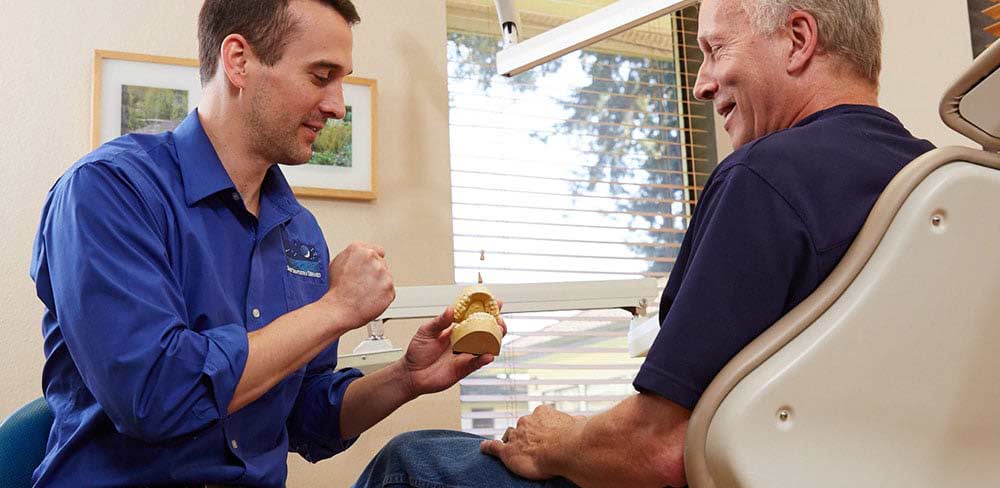Emergency Dental During Covid-19 (Novel Corona Virus) Pandemic
A note to our Sleep Dentistry Defined Family in these difficult and troubled times:
In this time of turmoil, we understand there’s a lot of misinformation, confusion and uncertainty. In an effort to clear some of this up, we wanted to issue this statement to you and answer some of the most common questions we’ve been receiving lately.
Most importantly, our local Portland offices are open and here to help you with your dental troubles. We are, first and foremost, dental healthcare providers, and we don’t want to leave our patients with nowhere to turn. However, in an effort to do our part in minimizing the spread of COVID-19, we’ll continue to follow all the recommendations of the American Dental Association.
This means we’ll still serve our patients for dental emergencies. All other patient requests will be determined on a case-by-case basis. However, if you, the patient, are exhibiting any known symptoms of the COVID-19 virus, we’ll not be able to treat you. These symptoms can include shortness of breath, a persistent, dry cough and a fever. (http://www.ada.org/en)
New Check-In Procedures
Additionally, we’d like to inform you of our new check-in procedures. Please adhere to these and be understanding with our staff, as they’ve been put in place for the safety of you, your families, our staff and our communities at large.
These new check-in policies include the following:
- If you’re an adult, please come to your appointment alone. If you need a driver, please have your driver to wait for you inside your vehicle.
- If the appointment is for a child, please bring only the child being seen and one adult.
- Immediately upon arrival, you will have your temperature taken. This is mandatory for the safety of everyone. If you have a temperature of 100.4 or higher, we’ll not be able to see you and you’ll have to reschedule.
- After the check-in process is complete, you’ll be asked to wait outside the building in your own personal vehicle. This is to limit the number of people in our Oregon office at one time and comply with mandatory social distancing protocols. Someone from our office will either text or call you when it’s time for your appointment.
- Policies and procedures are subject to change at any time.
Frequently Asked Questions
Why is Sleep Dentistry Defined remaining open during this pandemic?
Many people don’t realize, but dental pain is one of the most common reasons for patients to visit the ER. During the COVID-19 crisis, however, emergency rooms across the country are at capacity. We are remaining open in order to help alleviate some of the strain from our emergency rooms.
Furthermore, we understand that other health problems don’t simply stop in the time of a pandemic. Here at Sleep Dentistry Defined, we want to continue to provide you with the same compassionate, professional and high-quality care you’ve received from us in the past. Please know we’re doing absolutely everything necessary to protect you and your family each time you enter our office.
Is it safe for me to have dental work done at this time?
Every single person in our Beaverton OR office is taking every precaution to adhere to the recommendations and regulations laid out by the ADA, CDC and the state and federal regulatory bodies. If, at any time, we believe we can no longer provide safe dental care, we’ll notify you immediately.
What precautions are you taking to ensure my safety?
We’ve always held ourselves to the highest possible standards of cleanliness and safety in our location, and we continue to do so now. We continually follow the strictest infection control guidelines set down by the CDC and ADA.
These measures include the following:
- Sanitizing: We continually clean and sanitize all public spaces. This includes the waiting room, restrooms, treatment rooms and all other areas of our office.
- Use of Sterile Instruments: We sterilize our instruments after use on each patient, using the exact protocols set down by the CDC concerning the sterilization of dental equipment.
- Erection of Protective Barriers: We’ve placed protections around suction tips, computer keyboards, overhead and curing lights, armrests and other oft-touched surfaces. This will minimize the chance of cross-contamination.
- Use of Medical-Grade Disinfectants: We use the exact guidelines laid down by the CDC in selecting our medical-grade disinfectant spray. We use this spray after each patient on equipment, chairs, counter tops and any other area where patients go.
Have you put any additional precautions in place to ensure my safety?
We have. In addition to all our standard practices, we’ve also implemented the following additional precautions:
- We’re discouraging our staff members from traveling. However, if a staff member must travel, particularly to a CDC Level 2 or 3 region, he or she must self-quarantine for the recommended period of time before returning back to work.
- Any staff member who shows symptoms of COVID-19 will remain home.
- We’ve a three-step screening process for patients. We check them for symptoms when they first make an appointment, again when we call to confirm their appointments, and a third time once they reach the office.
- We’ve increased the length of time between patients’ appointments.
I have an upcoming appointment. Should I reschedule it?
If any of the following apply to you, you should reschedule your appointment:
- You or someone you’ve been in contact with has recently visited one of the states or countries with high COVID-19 outbreak rates.
- You are showing symptoms of COVID-19.
- Someone with whom you’ve been in close contact has been diagnosed with COVID-19.
- Someone with whom you’ve been in close contact has been quarantined due to symptoms of COVID-19.
If any of these apply to you, you should wait at least 14 days; if you’ve no symptoms of the virus, you can reschedule your appointment.
If you’re healthy and haven’t been in contact with anyone infected or suspected of being infected, you can keep your appointment as scheduled.
Is there anything I can do to decrease my chances of catching the virus?
In addition to performing normal, every-day hygiene – brushing, flossing, cleaning your tongue – you should also gargle regularly with mouthwash, preferably one with hydrogen peroxide in it.
Additionally, you should wash your hands regularly. Use soap and water and scrub thoroughly for a minimum of 20 seconds. Wash especially well after you’ve been in public or if you sneeze, cough or blow your nose. Washing your hands in soap and water is always best. However, if it isn’t possible, sanitize your hands with sanitizer containing 60% alcohol or more.
Finally, remember these three things:
- Don’t touch your face.
- Avoid sick people or people exhibiting symptoms.
- Keep six feet between you and other people at all times.
More form the CDC and Web MD
Dental Emergencies During COVID-19 Pandemic: Everything You Need To Know
Dental Emergencies During COVID-19 Pandemic: Everything You Need To Know
You may run into dental emergencies during your life, but what if you face one during the COVID-19 outbreak? You may worry about going and visiting a dentist during such a situation, so how do you identify the difference between dental difficulties and an emergency? Make sure to remember these points so that you can keep yourself safe.
The Risks of Dental Visits
People tend to overlook the severity and potential dangers of the coronavirus. It’s a respiratory based virus, meaning that it spreads through the air. If someone infected coughs or sneezes, the virus will release into the air and remain there for hours. That means that you put yourself at risk of catching it if you breathe it in.
This means that you run the risk of catching the coronavirus when you go the dental office. On top of that, you also run the risk of exposing dentists to the virus and infecting them. This means that you should remain cautious and careful when facing a dental emergency and take the proper precautions if you must visit the dental office.
Dental Issue vs. Dental Emergency
Keep in mind that a dental issue isn’t the same as a dental emergency. For example, if your teeth become sensitive to the cold, then this wouldn’t be considered a dental emergency. However, you do have general symptoms that you should consider to determine if you’re facing a dental emergency that requires immediate attention.
If you have excessive pain in your teeth, gums or jaw, then you may face a dental emergency. This could also apply to losing teeth, infections and swelling. In short, if there’s a severe injury or change in your mouth, then you should contact your dentist and see if you need to go to the dental office to fix it.
Determining the Severity
Dental emergencies refer to severe pain or issues with your mouth. If something happened that caused serious damage to your mouth, then you can consider it something severe and to get it checked out. However, if you might have a cavity, then this may not be considered an emergency since it won’t put your life or dental health at risk.
If you’re not sure of the severity of your dental situation, do your best to contact and talk with a dentist. For example, you can send an email to your dentist office, explain your situation and ask them if it’s an emergency. This way, you can get your dentist’s advice and see if it’s something that needs immediate attention.
Precautions During an Emergency
If you do face a dental emergency, then make sure to keep yourself safe as you visit the dental office. For example, when you return to your car, make sure to wipe down anything you touch while getting into the car with cleaning wipes. This way, you can reduce the risk of the coronavirus getting into your car without you realizing it.
While inside of the dental office, make sure to wear a face mask. This way, you will prevent germs from entering or leaving your body so that you don’t face as strong of a risk of catching the virus. Of course, you need to remove the mask once your doctor checks your teeth, but you can still minimize exposure as much as you can.
Conlusion
You may worry about visiting a dental office during the COVID-19 pandemic, but you can take proper precautions to keep yourself and others safe. Make sure that you check your dental health, see if you have a dental emergency and visit your dentist if necessary. By being careful, you can remain safe during this pandemic while taking care of your teeth.




